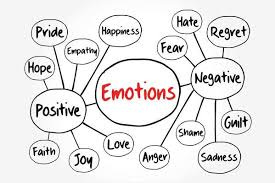
I was in my office, sitting at my desk, working at the computer on a Wednesday afternoon when Dan came in. He looked normal but insisted that he had to go to the hospital immediately - something was wrong with his stomach. His complaint was familiar. I offered options, but he insisted.
So I took him - he was in distress. After an hour of waiting in the emergency room reception area with a lot of other people, an attendant took him into a private room, where she began taking tests and giving him medications that he couldn’t tolerate.
I asked the nurses several times what was going on and why they weren’t doing something to ease his discomfort. Their response - they were super busy.
After four hours, they sent him to the hospital by ambulance. Two days later, he had abdominal surgery.
That was the beginning of my caretaking journey - a job I was not prepared for or wanted. Dan’s body survived the surgery and recovered quickly, but his memory, which was somewhat shaky already, never did. The effects of the hospital stay, anesthesia, and various medications were too much.
Whether we become caregivers gradually or suddenly, willingly or by default, many emotions surface; some happen immediately, and others don’t surface for a while. Whatever the situation, our feelings are valid and essential, and caring for a loved one takes enormous physical, mental, spiritual, and emotional energy.
We are often reluctant to express negative feelings; we fear being judged or burdening others with our problems. After a while, the “negative” emotions we tend to bury or pretend we don’t feel rise to the surface.
That was certainly true for me.
I didn’t want to burden others with our problems - it was my job to care for my husband. Over time, though, the frustration, doubt, and worry were too much. I did a lot of journaling and talked with trusted friends about the situation, but it wasn’t enough.
Not paying attention to our feelings can lead to poor sleep, illness, trouble coping, stress eating, substance abuse, etc. Conversely, acknowledging our feelings allows us to identify productive ways to express and deal with them. As Dr. Phil’s Life Law No. 4 says, "You can't change what you don't acknowledge."
The Psychology Today website lists 35 common emotions - take a look. These are ten that I could relate to as I provided care. You may identify others.
Love pushed me to care for my husband even though I didn’t want to.
Sadness reminded me that I was losing something and someone very important.
Compassion helped me understand his confusion and worry.
Anxiety was my constant companion. Somehow, it energized me to prepare, manage, and handle situations as they arose.
Joy surfaced when we did a puzzle or walked together and when he was relieved that I explained something he was worrying about.
Frustration and resentment exploded when ‘they” said I “should be” doing certain things, but they didn’t know Dan - and didn’t ask.
Guilt indicated that I was not acting as I wanted.
Lost emphasized that this was new territory for me and needed answers and guidance.
Helplessness reminded me there were no solutions.
Burdened signaled that I needed help. I tried doing it on my own but needed help.
The Family Caregiving Alliance offers a similar list.
In a recent post, Kristi Koeter wrote about Finding a Vocabulary for Feelings. Look at the emotional color wheel in the article - it offers an extensive feeling vocabulary. Knowing those words can help us express our needs more clearly.
Experience tells me that I should have listened to my emotions more closely and taken better care of them sooner. The situation would not have changed, but I might have managed better.
P.S. Thanks for reading Aging Well News! If you know someone who might enjoy this article, please forward it or share it below.
If you want to contribute to my work, consider donating to the Alzheimer's Association. This link takes you to their website. The choice is yours.




Whether we become caregivers gradually or suddenly, willingly or by default, many emotions surface; some happen immediately, and others don’t surface for a while. Whatever the situation, our feelings are valid and essential, and caring for a loved one takes enormous physical, mental, spiritual, and emotional energy.
When I was a school guidance counselor, I hung a poster of emotion emojis on the wall. It helped so many kids identify how they felt. That always amazed me. I will remember your advice if I ever need it. Thanks so much, Janice. Wonderful article as always. ~ Jan xoxo PS I am having commenting on your blogs each week without signing in, etc. Just know I am always reading them.